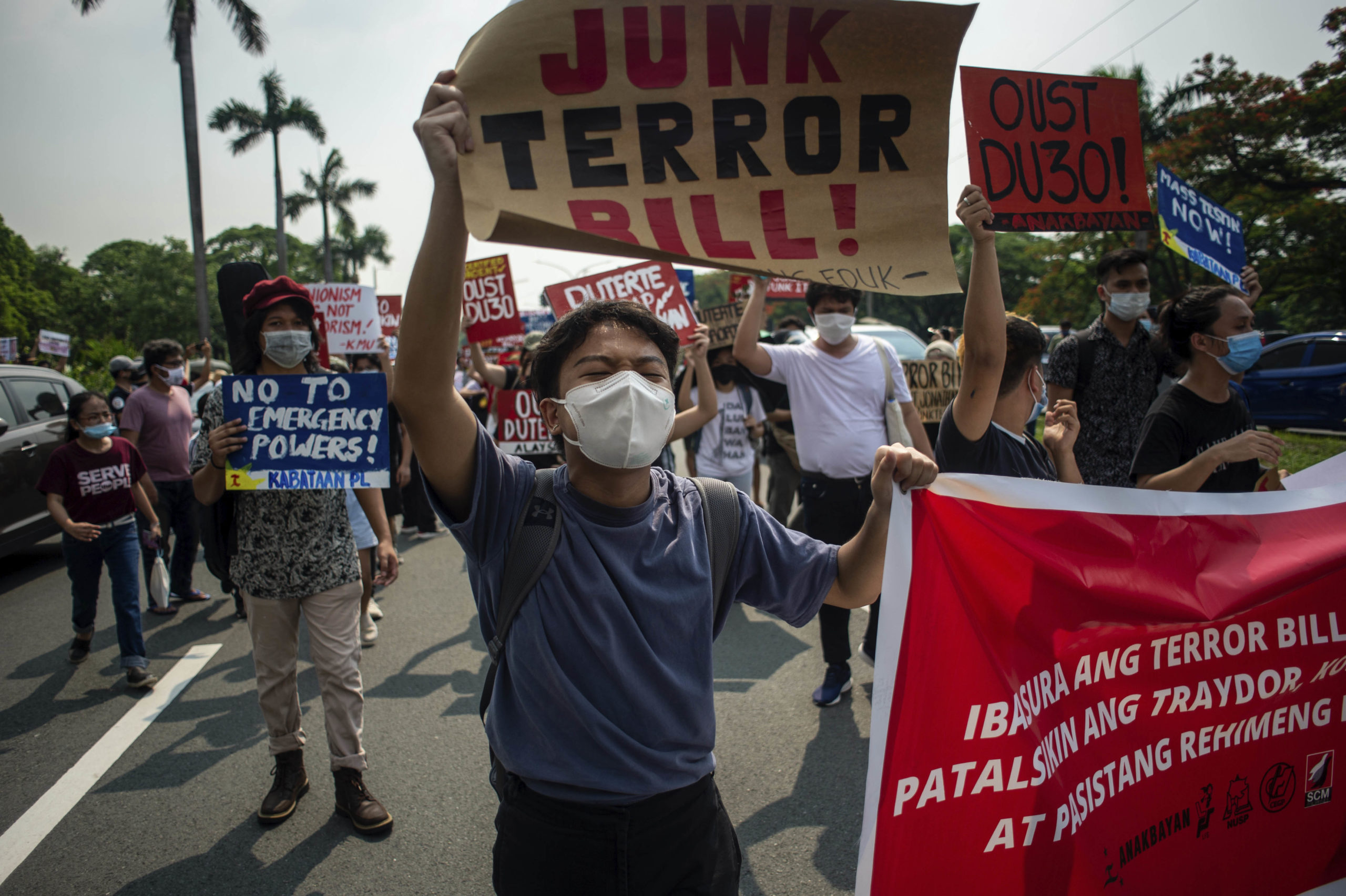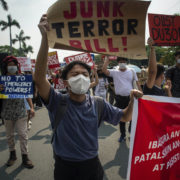
MALACAÑANG on Wednesday, June 10, said the protests against the anti-terrorism bill would push President Rodrigo Duterte to scrutinize the measure “even closer.”
“Let’s just say that the public interest on the bill will make the President review the provisions of the bill even closer,” said presidential spokesperson Harry Roque in an interview with ABS-CBN News Channel’s Headstart.
On Tuesday, June 9 Malacañang confirmed that it has received a copy of the controversial bill.
When asked about the possibility of Duterte allowing the bill to lapse into law, Roque answered: “The president did certify (it) as urgent so he agrees with the principal author of the bill, Senator Ping Lacson, that there is a need for the law.”
The anti-terrorism bill, which seeks to strengthen the Human Security Act of 2007, grants any law enforcer the capacity to arrest and detain without warrant “a person suspected of committing any of the acts” punishable under the measure for 14 calendar days, extendable by 10 days. The suspected “terrorist” can also be placed under surveillance for 60 days, extendable by up to 30 more days, by the police or the military.
Acts punishable under the bill include:
• Engaging in acts intended to cause death or serious bodily injury to any person, or endangers a person’s life;
• Engaging in acts intended to cause extensive damage or destruction to a government or public facility, public place, or private property;
• Engaging in acts intended to cause extensive interference with, damage, or destruction to critical infrastructure;
• Developing, manufacturing, possessing, acquiring, transporting, supplying or using weapons; and
• Releasing of dangerous substances, or causing fire, floods or explosions.
Any person who will propose, incite, conspire, participate in the planning, training, preparation, and facilitation of a terrorist act; as well as those who will provide material support to terrorists, and recruit members in a terrorist organization will also be penalized by life imprisonment without the benefit of parole.
Meanwhile, anyone who will threaten to commit terrorism, and those who will propose any terroristic acts or incite others to commit terrorism will suffer imprisonment of 12 years.
This also goes for anyone who will voluntarily and knowingly join any organization, association or group of persons knowing that such is a terrorist organization.
Senator Francis “Kiko” Pangilinan, who voted against the passage of the bill, pointed out that the bill’s vague provisions leave it prone to abuse.
“Given the authoritarian bent of the current administration… when these excesses are happening, who is to be confident that this law will not be abused or used to go after critics?” he said Wednesday in an interview on ABS-CBN News Channel.
He also cited the cases of Sen. Leila De Lima as well as ousted Chief Justice Maria Lourdes Sereno who are both critics of Duterte and his drug war.
“The 6,000 [deaths in] police encounters in drug war, they were said to have fought arrest. Then one who may be detained for 24 days under the anti-terrorism bill, they may also be accused of fighting back that’s why they would be killed,” Pangilinan continued in Filipino.
“That is what we are afraid of,” he added.





